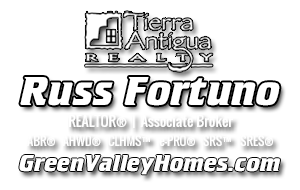Closing Costs
and other fees incurred by Home Sellers
In every real estate transaction, both buyers and sellers incur additional costs at closing to carry out the terms of the sale. Closing Costs on the seller’s side of the transaction are fees that cover title and escrow services, document preparation, commission and brokerage fees, HOA transfer fees and resale disclosures, and concessions to the buyer.
Keep in mind that in real estate transactions, almost anything is negotiable, and on occasion buyers may ask sellers to pay all or part of their own closing costs as well. Depending on market conditions, the strength of the buyer’s offer and type of financing, it may be worth considering paying some of the buyer’s costs. Your listing agent will advise you on what’s reasonable based on other terms in the offer.
Here’s a guide to closing costs and other fees you can expect to pay when selling a home.
Title and Escrow Fees
Escrow Fee: This fee is charged by the escrow company for their services as a neutral third party to carry out the process of transferring ownership of property. Fees vary from $300 – $1,100, depending on the purchase price of the home and are usually split between the buyer and seller.
Owner’s Title Insurance Policy: Once escrow is opened, a title search is completed to identify any mortgages, liens or other encumbrances on the property that must be satisfied (“paid off”) before title to the property can be transferred to the buyer. The Title Insurance Policy insures the buyer against any losses related to defects in the title, judgements, liens, or other undisclosed issues that occurred prior to taking ownership. Under Arizona law, the Owner’s Title Policy is paid for by the seller.
Processing Fees: An estimate of $200 should be adequate to cover additional fees such as a notary, recording documents, couriers, wire transfers, tax service fees, etc., and other miscellaneous charges.
Commission & Brokerage Fees
Real Estate Agent Commission: This fee is typically a percentage of the gross selling price, and is determined at the time the seller signs the listing agreement. The total commission, paid at closing, is split among the agents/agencies representing the seller and the buyer, based on how that split is defined in the seller’s listing agreement.
Brokerage Fee: Some real estate agencies may also charge an franchise or brokerage fee (between $175 and $300) in addition to the broker’s commission. (Tierra Antigua Realty does not charge a brokerage fee.)
Resale Transfer and Disclosure Fees
Homeowners Association Fees: Residential resale transactions are often assessed a transfer and/or capital improvement fee by the Homeowners Association. The fees are disclosed and negotiated between buyer and seller in the “HOA Addendum” of the purchase contract. They include:
- Transfer Fee: An administrative fee changed by the HOA related to updating records upon transfer of the title. This can be paid by either the buyer, the seller, or split between the parties.
- Disclosure Fee: A fee charged by the HOA or its management company to prepare or provide documents related to the sale, including providing bylaws and governing documents to the buyer. Under Arizona law, Disclosure Fees cannot be more than an aggregate of $400 per association. Sellers pay all disclosure fees, also as required by Arizona law.
- Capital Improvement (or Community Enhancement) Fee: A fee charged by some associations, and used toward community reserve, asset preservation, capital reserve, working capital, community enhancement, or future improvements. This fee is usually paid by the Buyer, but can be paid by Seller, or split between the parties.
- Association Dues: HOAs charge monthly or annual dues, which are pro-rated at time of closing. If you’ve pre-paid dues for any part of the month or year in which you close escrow, you’ll receive a pro-rated credit at closing.
Green Valley Recreation (GVR): If the home you’re selling is member of GVR, you’ll be assessed a $400 transfer fee. The fee can be paid by either the buyer or seller, and is negotiated on the Green Valley/Sahuarita Addendum. Annual dues are prorated at closing.
Taxes & Insurance
Property Tax: Because property taxes in Arizona are paid in arrears, you will likely close escrow before your taxes for the current year are due and paid. For example, taxes for the 1st half of the current year (January through June) are not due until October, and taxes for the 2nd half of the year (July through December) are not due until April of the following year.
For this reason, you will be charged for your tax liability through closing date, which will be credited to the buyer, who will be responsible for paying the tax when it becomes due. If your current mortgage payment includes an impound for taxes and insurance (most do), you’ll receive a refund of the balance of that account from your lender once the mortgage is paid off (usually within 30 days after closing).
Homeowners Insurance: Your annual homeowners insurance policy is also paid from the impound account, but in advance of the year, on the anniversary of which you purchased the home. Be sure to contact your insurance carrier after close of escrow to cancel coverage on the house you’ve sold, and to request a pro-rated refund of that policy.
Seller Concessions
If you agreed to contribute to the buyer’s closing costs, you will be charged that amount at closing and a credit will be applied to the buyer’s side of the transaction. Typically buyers request closing cost assistance when they have limited funds to cover both down payment and closing costs. This is most common for buyers financing under FHA or VA loan programs.
Home Warranty
If you agreed to provide the buyer with a home warranty as part of your contract negotiation, the buyer’s agent will order the warranty and send the invoice to the escrow agency to be paid for from the seller’s proceeds.
As you can see, there are a number of different closing costs that you may encounter when you sell your home. The list above is not intended to be all-inclusive, but reflects what is generally required of most home sellers. Your Listing Agent and escrow officer will help you to better understand these costs.



